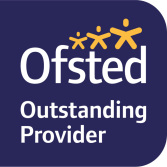
Illnesses, medication and infectious diseases policy
It is my policy to promote good health and take necessary steps to prevent the spread of infection within my childcare setting and take appropriate action when children become ill. There will be times when I am required to give your child medication. I will only administer prescription medication prescribed by a medical professional. I will only accept prescription medication in its original container, with the name of the medication and the child’s name on it and in date. If any of this information is missing, I am not allowed to administer this medication.
I am required by law to get written permission from parents/carers for every medication that your child will require. At the beginning of each new contract, I will ask you to sign a standard permission form allowing me to administer a pain relief medication such as Calpol so that if you are unavailable, I can administer this to your child to alleviate any immediate pain. Each child will bring their own medication which will be stored securely with the child’s name on the original container. I will always try to contact the parent/carer before administering the first and consecutive required doses. If I cannot make contact with the parent/carer and the child is in distress I will administer the first dose of the medication and leave a message for the parent/carer to call me back immediately.
I never administer medicines containing aspirin to a child under the age of 16 unless they have been prescribed by a doctor.
I have a current 12 hour paediatric first aid certificate which is consistent with the Statutory Framework for the EYFS approved by Surrey County Council. This is renewed every 3 years (last renewed 18/11/2023). I follow the requirements laid out in the EYFS framework and in the Department for Education and UK Health Security Agency guidance or guidance on local outbreaks.
Procedure
To protect everyone who attends our setting, as well as my own family, I ask parents/carers to provide regular updates on the health of their family/household. I will share updates about my own family’s health with parents/carers.
I promote handwashing in warm soapy water when children first arrive each day, before eating or handling food, when they get back from school or if we’ve been out and after using the toilet. Fresh clean flannels are always available for drying hands and the children put them directly into the washing machine after use. I also wash my hands whenever necessary in warm soapy water for at least 20 seconds.
If I need to administer medication I will: -
- Obtain prior written permission from parents for every medication to be administered before given.
- Find out if any medication has been administered at home before the child arrives at my setting. If it has; make a note of it in our accident folders with a parent/carers signature.
- Contact the parent/carer by telephone before administering pain relief medication
- Keep written records of all medicines administered to children in my care, ask parents/carers to sign and take a copy home with them.
- If the child requires prescription medication, the first dosage should be given by the parent at their home to make sure that the child does not have any allergic reaction.
- Work in partnership with parents to ensure the correct medication, dosage etc is given.
- If the child does not take the medication, I will make a note of this and advise the parents by telephone as soon as possible to agree a plan of action. I will never force a child to take their mediation.
All medicines will be stored out of reach of children or in the fridge and kept strictly in accordance with the product instructions and in the original container in which it was dispensed. To avoid cross contamination of prescribed medication, this is kept in a sealed container in the fridge.
If the administration of prescription medicine requires technical/medical knowledge, then I will attend training from a qualified health professional. The training would be specific to the child in question.
If I have a child in my care with long-term medical needs, then I will ensure that I have sufficient information about the child’s medical condition and will work in partnership with parents to assist the administration of any prescribed medication.
When a child requires long term preventative medication like an asthma pump or emergency mediation like an epi-pen I will:-
- Get written permission to administer this medication when the child joins my setting even if the child can administer the medication themselves.
- Gather all the relevant information regarding the medical condition of the child and when they may need this medication; before they start at my setting.
- If needed, I will attend training.
- Store the medication securely out of reach of children and pass this to the child to self-administer or administer to them as required.
- Make sure the medication is in date and ask for new supplies as needed.
- Contact the parent by telephone to advise that the medication has been given as soon as possible.
- Record the administration of this medication in my accident folder and ask the parent/carer to sign upon collection of the child.
- Take preventative medication, and any other medication required (prescription, asthma pumps, epi-pens) out with us so that I always have them to hand.
Medication for myself and my own family is kept out of reach in a separate place to where mediation for childminding children is kept. I will make sure that if I am taking any medication, it does not impede my ability to look after the children.
I constantly check the children for signs and symptoms of infectious diseases such as chickenpox, hand foot and mouth, conjunctivitis, measles, rubella, meningitis, fevers, COVID-19, vomiting etc by watching them closely, checking their temperature, getting information on their health from their parents/carers, teachers, or nursery workers and by speaking to them.
If a child arrives at my setting with a disease or illness that I believe to be infectious or that poses a risk to the other children in the setting or myself, I will ask you to take them home immediately. This includes sickness and diarrhoea, hand foot and mouth and conjunctivitis. If a child has vomited, they will not be allowed to attend my setting for 48 hours after the last vomiting episode. This is to minimise the risk of the transmission of an infection to other children, myself or members of my household.
NHS guidelines may differ from my own; and my setting’s guidelines take precedent over GP or NHS guidelines. It is my responsibility to take all steps necessary to prevent the spread of infections amongst children. Some families have members with low immune systems or health conditions, so I am very strict about keeping infected children at home until they are well.
I always carry tissues with me, and I promote the use of tissues for children with coughs and minor colds. Tissues are available at home for children to use freely on their own or with my help. All spillages of bodily fluids will be cleaned up immediately and I wear disposable gloves for this. I discard the gloves after each use. I will ensure that any animals on the premises are safe to be around children and do not pose a health risk. Please also see my Animal Policy.
I will notify parents (by putting up a poster or by sending a text, WhatsApp or email) of cases of headlice, hand foot and mouth, sickness and diarrhoea, conjunctivitis and other infectious illness or any other health issues at my setting making sure personal details are always kept confidential.
If a child becomes unwell with symptoms of a respiratory illness (including COVID-19) and/or develops a high temperature, they must be collected immediately and parents/carers will be advised to follow updated guidance from the government which can be found here People with symptoms of a respiratory infection including COVID-19 - GOV.UK (www.gov.uk). I will isolate the unwell child, if safe and possible, away from the other children. Once the child has gone home, I will wash my hands thoroughly as well as any area that may have been contaminated by the unwell child.
Where a child has symptoms for COVID-19 (COVID-19 symptoms and what to do - NHS ) they should remain at home. They can return to my setting if they are no longer unwell and no longer have a high temperature. If they have tested positive for COVID they should stay at home for at least 3 days after the test was taken.
If I have helped someone who is unwell with respiratory infection (including COVID-19), I will wash my hands thoroughly and watch out for any symptoms in myself. Should I develop symptoms I will follow the government guidance (COVID-19 symptoms and what to do - NHS). In line with this guidance if I test positive for COVID-19 I will close my setting for 3 days and avoid contact with others
Please also refer to my accident and emergency policy.
If I believe a child in my setting is suffering from a notifiable disease, identified as such in the Public Health (Infectious Diseases) Regulations 1988, I will act on advice given by the Health Protection Agency and inform Ofsted of any action taken. A list of notifiable diseases can be found on the Health Protection Agency website Notifiable diseases and how to report them - GOV.UK (www.gov.uk)
If I, or any member of my family, has a confirmed infectious disease, I will inform parents/carers as soon as I am able. I will inform the parents of the other children in my setting if a child I care for has a diagnosed infectious disease, whilst keeping the children’s details confidential.
Useful websites
Health and Safety Executive www.hse.gov.uk
Government website advising what infections are, how they are transmitted and those at higher risk of infection Health protection in children and young people settings, including education - GOV.UK (www.gov.uk)
Government guidance on COVID-19 People with symptoms of a respiratory infection including COVID-19 - GOV.UK (www.gov.uk)
Policy Written by: Ilana Hill Date: 17 January 2011
Last updated and reviewed: 3 March 2025 by: Ilana Hill

